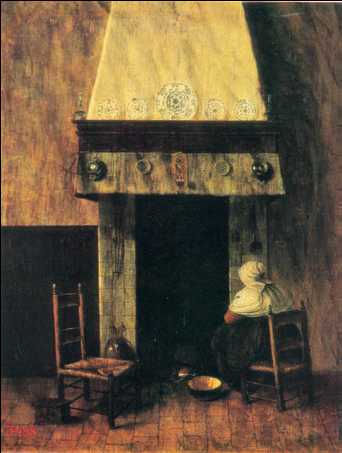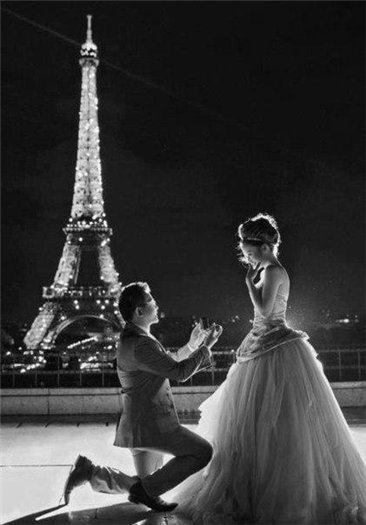Short stories by modern writers. Three stories by modern writers
Short stories are a genre in literature that requires special skill and talent of the author. Sometimes 55 words are enough to convey the meaning and idea. This is incredibly small, but it is enough to think about what sometimes seems insignificant and unimportant to us. A short story is the story of one life, one tragedy, one fate.
One day, New Time magazine held an event in which participants were asked to write a story no more than 55 words long. The action caused an incredible response among readers.
The result of this action was a collection called “The World’s Shortest Stories.” Genre short stories captivated not only the readers of New Time magazine, but also the best representatives of the literary community. So, for example, Hemingway once won an argument by writing a story that could touch anyone and consisted of only 4 words:
“Children's shoes for sale. Unworn."
Some believe that any story should contain three traditional components: beginning, climax and denouement. Master of the story O. Henry won the competition by writing his short story, taking into account these requirements:
“The driver lit a cigarette and bent over the gas tank to see how much gasoline was left. The deceased was twenty-three years old."
American science fiction writer and master of the detective genre Frederick Brown managed to write the shortest of scary stories:
“The last man on Earth was sitting in a room. There was a knock on the door..."
But you don't have to be a recognized literary genius to write short stories. For example, an elderly French woman won a competition by writing the shortest autobiography:
“I used to have a smooth face and a wrinkled skirt, but now it’s the other way around.”

TOP 20 SHORT STORIES.
"What the Devil Wants"
The two boys stood and watched Satan slowly walk away. The sparkle of his hypnotic eyes still clouded their heads.
Listen, what did he want from you?
My soul. And from you?
A coin for a pay phone. He urgently needed to call.
Do you want us to go eat?
I want to, but now I have no money at all.
It's OK. I have plenty.
Brian Newell.

"Higher education"
In college, we just wiped our pants down,” Jennings said, washing his dirty hands.
After all these budget cuts they don't teach you much, they just made estimates and things went on as usual.
So how did you study?
But we didn’t study. However, you can watch me work.
The nurse opened the door.
Dr. Jennings, you're needed in the operating room.
Ron Bast.
"Gratitude"
The wool blanket he'd recently been given from a charity felt comfortable around his shoulders, and the boots he'd found in the trash today didn't sting at all. The street lights warmed his soul so pleasantly after all this chilling darkness... The curve of the park bench seemed so familiar to his tired old back. “Thank you, Lord,” he thought, “life is simply amazing!”
Andrew E. Hunt.
"Rendezvous"
The phone rang.
Hello,” she whispered.
Victoria, it's me. Let's meet at the pier at midnight.
OK, darling.
And please don’t forget to take a bottle of champagne with you,” he said.
I won't forget, dear. I want to be with you tonight.
Hurry up, I have no time to wait! - he said and hung up.
She sighed, then smiled.
I wonder who it is,” she said.
Nicole Weddle.

"Bed Story"
Watch out baby, it's loaded,” he said as he walked back into the bedroom.
Her back rested on the headboard of the bed.
Is this for your wife?
No. It would be risky. I'll hire a hitman.
What if the killer is me?
He grinned.
Who is smart enough to hire a woman to kill a man?
She licked her lips and aimed her sights at him.
Your wife's.
Geoffrey Whitmore.
"Unfortunate"
They say evil has no face. Indeed, no feelings were reflected on his face. There was not a glimmer of sympathy on him, but the pain was simply unbearable. Can't he see the horror in my eyes and the panic on my face? He calmly, one might say, carried out his dirty work professionally, and at the end he politely said: “Rinse your mouth, please.”
Dan Andrews.
"The Decisive Moment"
She could almost hear the doors of her prison slamming shut. Freedom is gone forever, now her fate is in someone else’s hands, and she will never see freedom. Crazy thoughts flashed through her head about how nice it would be to fly far, far away. But she knew that it was impossible to hide. She turned to the groom with a smile and repeated: “Yes, I agree.”
Tina Milburn.
"Start"
She was angry with him. In their idyllic life, they had almost everything, but she longed for one thing - something they never had. Only his cowardice was a hindrance. Then it will be necessary to get rid of it, but it’s too early. It's better to be calm and cunning. Beautiful in her nakedness, she grabbed the fruit. “Adam,” she called quietly.
Enrique Cavalitto.

"In the hospital"
She drove the car at breakneck speed. Lord, if only I could make it on time.
But from the expression on the face of the doctor from the intensive care unit, she understood everything. She began to sob.
Is he conscious? “Mrs. Allerton,” the doctor said softly, “you should be happy.”
His last words were: “I love you, Mary.” She looked at the doctor and turned away.
“Thank you,” Judith said coldly.
Barnaby Conrades.
"Hide and Seek"
Ninety-nine, one hundred! Ready or not, here I come! I hate driving, but for me it's much easier than hiding. Entering a dark room, I whisper to those who are hiding inside: “They hit and hit!” They follow me along the long corridor with their eyes, and in the mirrors hanging on the walls my figure in a black cassock and with a scythe in his hands is reflected.
Kurt Homan.
"Fate"
There was only one way out, for our lives were intertwined in too tangled a knot of anger and bliss to solve everything any other way. Let's trust the lot: heads - and we will get married, tails - and we will part forever. The coin was tossed. She tinkled, spun and stopped. Eagle. We stared at her in bewilderment. Then, with one voice, we said, “Maybe one more time?”
Jay Rip.

"Evening Surprise"
Shiny tights hugged her beautiful hips tightly and seductively - a wonderful addition to a light evening dress. From the very tips of the diamond earrings to the toes of the elegant shoes with thin stiletto heels, everything was simply chic. Eyes with freshly applied shadows examined the reflection in the mirror, and lips painted with bright red lipstick stretched with pleasure. Suddenly a child’s voice was heard from behind: “Dad?!”
Hillary Clay.
"Window"
Ever since Rita was brutally murdered, Carter has been sitting by the window. No TV, reading, correspondence. His life is what is seen through the curtains. He doesn't care who brings the food, who pays the bills, he doesn't leave the room. His life is passing athletes, the change of seasons, passing cars, the ghost of Rita. Carter doesn't realize that the felt-lined chambers have no windows.
Jane Orvey.

"It was a year ago"
Flowed by a light breeze, Doug stood and looked at Joey.
Hey Joey! - said Doug.
There was silence all around.
I'm sorry, Joey. I did not want. Honestly. Happy New Year, Joey!
Doug placed a rose on Joey's grave and slowly walked away.
Will you ever forgive me for driving drunk that night? - he asked.
Grace Kagimbaga.
"In the garden"
She was standing in the garden when she saw him running towards her.
Tina! My little flower! Love of my life!
He finally said it.
Tina, my flower!
Oh Tom, I love you too!
Tom approached her, knelt down and quickly pushed her aside.
My flower! You stepped on my favorite rose!
Hope Hey Torres.
"In Search of Truth"
Finally, in this remote, secluded village, his search ended. Truth sat in a dilapidated hut by the fire. He had never seen an older, uglier woman.
Are you - Really?
The old, wizened hag nodded solemnly.
Tell me, what should I tell the world? What message to convey?
The old woman spat into the fire and answered:
Tell them I'm young and beautiful!
Robert Tompkins.

"Bad luck"
I woke up with severe pain throughout my body. I opened my eyes and saw a nurse standing by my bed.
Mr. Fujima, she said, you were lucky to survive the bombing of Hiroshima two days ago. But now you are in the hospital, you are no longer in danger.
A little alive from weakness, I asked:
“To Nagasaki,” she answered.
Alan E. Mayer.
"Trial"
She hated them! All of them! Their masks did not hide their joy as their lustful hands pressed her down so that he could have his way with her. The pain was unbearable. But he did not stop, he continued to perform this monstrous ritual over her. Her screams only encouraged him. She knew that if she did not give in, death would be inevitable. Finally, satisfied, he said, “Boy.”
Tom McGrane.
"Ghost"
As soon as this happened, I hurried home to tell my wife the sad news. But she didn't seem to listen to me at all. She didn't notice me at all. She looked right through me and poured herself a drink. She turned on the TV. At that moment there was a phone call. She walked over and picked up the phone. I saw her face wrinkle. She cried bitterly.
Charles Enright.
"Offer"
Starlight Night. It's the right time. Romantic dinner. Cozy Italian restaurant. Little black dress. Luxurious hair, sparkling eyes, silvery laughter. We've been together for two years. Wonderful time! Real love, best friend, no one else. Champagne! I offer my hand and heart. On one knee. Are people watching? Well, let!
Beautiful diamond ring. Blush on the cheeks, charming smile. How, no?!
Larisa Kirkland.

Katerina Goltsman
Of all the short stories by Astafiev, I focused on this one, because it touches on a topic close to teenagers - the attitude of the generation of “grandfathers” towards them. In the minds of some guys, a grandfather is an eternal grumbler, who is irritated by everything in the world in young people: music, hairstyles, “bells and whistles” on clothes, slang words, independent behavior... But for Astafiev - light image an old man, a former front-line soldier. I start the conversation with the question: “What about Sergei Mitrofanovich’s personality inspires respect?” The question touches the guys to the quick, they vying with each other and rush to speak out: “He treats young people well!”, “He doesn’t grumble at the guys that they make noise there, drink wine and all that!”, “He doesn’t reproach, like some, that he He fought for them, but they are ungrateful, they don’t value anything!”, “He, on the contrary, thinks that the front-line soldier who spoke on the radio and said that young people didn’t know dashing and therefore don’t value anything is wrong. And Sergei Mitrofanovich argues with him: do you want the young to starve and feed lice in the trenches? It’s like they’re not ours, but some stepchildren,” “And he’s not greedy either - he treats the guys to wine.” Last year one of the girls said: “He doesn’t have his own children, and these guys are like sons to him.” The guys also talk about the old man’s ability to console, to say kind word, and about his modesty - with his talent he did not try to become a singer, he believed that he was unworthy. I draw the guys’ attention to the kindness of Sergei Mitrofanovich, his tolerance, ability to enter into the position of another person, to understand him. So, indignant at bureaucratic orders, he understands the doctor who is forced to follow them. To my surprise, my students do not notice the hero of the story’s ability to truly love, his touching relationship with his wife. (Apparently, the teenagers were so fascinated by the burning topic for them - the relationship of the old front-line soldier to the youth, that everything else moved into the background.) However, when I remind about this, the guys actively work: they find and read the relevant fragments, retell the most memorable ones.
If we still have a little time left, we dedicate the next lesson to Astafiev. Homework assignments: minimum (mandatory for everyone) and maximum (for those who wish). The minimum is to expressively read or retell the episode from “On a Clear Day” that made the greatest impression, and explain your choice. The maximum is to find materials about the writer’s life (this could be some kind of preface to works, textbooks, or information from the Internet) and retell the most interesting and significant. The guys choose a variety of episodes from the story. Girls often talk about how selflessly his wife nursed a shell-shocked husband; many people loved the episode where Sergei Mitrofanovich sings a lyrical song about the impression this made on the young people. Someone definitely remembers the bureaucratic procedures, when even legless disabled people were forced to appear for a second examination (“whether the leg has grown,” the old front-line soldier sneers), about the difficulties that our hero must overcome because of this.
If there is at least one person who has fulfilled the “maximum”, we listen to him. If there is none, I myself briefly talk about the writer’s life (sometimes, however, I do this before working on the story). I definitely read or retell an episode from Astafiev’s autobiographical story “The Jolly Soldier,” where the narrator (in fact the author himself), a front-line soldier who went through the entire war, shares boiled potatoes with a starving German prisoner.
Stories by Lyudmila Ulitskaya
Lyudmila Ulitskaya
Before working on them, I only notice that, as in Astafiev’s works, they are about the most ordinary people. And I also draw the guys’ attention to the fact that Ulitskaya’s heroes are people of the most different nationalities, inhabiting Russia. “Our country is multinational, and this is reflected in the writer’s work. So don’t be surprised to see in her stories, in addition to Russian names, Armenian, Jewish, Tatar and many others.”
We start with a story "Poor relatives". It is small in volume, and I read it right in class in order to simultaneously dwell on important details. Having read Anna Markovna’s conversation with Asya about the upcoming marriage of Anna Markovna’s daughter, about her student groom, I draw the guys’ attention to the vitality and typicality of this conversation. My words: “Such a conversation often happens in many families,” teenagers, especially girls, greet with joyful nods and smiles - they appreciated the realism of the situation! The girls are very amused by Anna Markovna’s words: “There’s still more to be done!” You've probably heard it more than once... After reading a story, I immediately ask about the main thing: “What is the story about?” As usual, at first schoolchildren, although eleventh graders, strive to replace the conversation about the meaning with a retelling of the content: “About how the poor relative came...” “No,” I interrupt, “let’s talk about the meaning of the story.” After thinking, the guys say: “About kindness.” And in a special class, one boy gave a completely philosophical answer: “That everything is relative: in comparison with someone, a person is poor, but in comparison with another, he is rich.” Yes, I agree, this idea is emphasized even by the title of the story. Not “poor relative”, but “poor relatives”. After all, compared to Asya’s semi-paralyzed, poverty-stricken friend, she herself is rich. But this does not exhaust the meaning of the story. I ask which of the characters evokes the most sympathy. The answer is clear: Asya. With your kindness. She, being in need herself, gives all the money and things that she got from her second cousin to an even poorer friend. Even camel gloves, although she so wanted to keep them for herself...
My next question: “What do you think Anna Markovna is depicted like?” The first thing the teenagers notice is: “She looks down on Asya.” Please find details confirming this. The guys easily cope with this, noting the fact that the wealthy sister asks her relative questions “politely and disinterestedly,” and the fact that she greets her “friendly and majestic,” and how she comes to her senses by sharing her own family matters: Who is she telling this to? One of the girls, however, remarked: “But you can understand Anna Markovna: it’s boring to talk to an imbecile!” “What, Anna Markovna is a bad person?” - I ask. “No,” they answer, “she treats her housekeepers well, takes care of them, arranges their lives. Even after marriage, they come to her with their husbands and children.” “She helps Asya every month and gives her money.” I draw the guys’ attention to the fact that she is seeing off her second cousin “with swaying cordiality.” And one more thing - Anna Markovna loves children, they are all “beautiful” to her. “You see,” I summarize, “you cannot judge a person unambiguously. Ulitskaya portrays ordinary people, with all their weaknesses and shortcomings. But she loves them all. She even has one of her collections of stories called “Poor, Evil, Beloved...”.”
“But,” I notice to the guys, “we didn’t talk about one very important aspect story. He touches Asya.” It’s interesting that when they say “she’s retarded,” the guys get embarrassed. Yes, I’ll add, she doesn’t understand reality (for example, she seriously offers the son of a wealthy sister who has a wonderful apartment to live with her in a small room with her future wife), dresses funny, doesn’t see the absurdity of her manners and behavior (every time she assures that came in by chance, on the way; giggles ridiculously). But it is she who is depicted unambiguously, with undisguised authorial sympathy. I ask the guys to find a phrase (if not everyone has the texts, remember) where the writer expresses this sympathy directly. Someone will definitely guess - at the very end, the last phrase of the story: “And Asya Shafran, our crazy relative, shone.” “Our crazy relative.” The writer seems to accept Asya into her family, feels her as one of her own, loved one. So, now let’s think about what the writer is telling us with this little story. “That kindness is the main thing,” the guys say. “That a weak-minded person is the same person.” “That any man can do good.” “Yes,” I summarize, “it turns out like this. Even if a person is not very smart, but if he brings goodness into life, then he is worthy of respect and sympathy.” Now I invite the children to think about which of our classics the story resembles in its attention to the most ordinary people and the most ordinary everyday situations. Of course, Chekhov. It’s not for nothing that he is Ulitskaya’s favorite writer (she has a play “Russian Jam” - a frank imitation of “ Cherry Orchard", the same problem and similar characters in a modern way). However, Ulitskaya's stories, unlike Chekhov's, are optimistic.
Assignment: read a story "Other People's Children". We dedicate the next lesson to him. I start by asking what the similarities between this story and “Poor Relatives” are. The question does not bother anyone: “Everything here is also very vital,” “about the most ordinary people,” “people also have shortcomings, but we still love them,” “ happy end", "this story is also about kindness." “Yes,” I clarify, “about how kindness and compassion turned out to be stronger than mistrust and resentment.” I draw the children’s attention to how powerfully and figuratively the moment is described when the girls’ crying turned Sergo’s soul, melting anger and resentment: “... the cast-iron heavens that he carried on his petrified shoulders trembled.” And further: “These strange children were crying. Their cry touched the fresh fractures of his heart and responded to them.”
Yes, Ulitskaya’s heroes are not ideal, but, warmed by the author’s love, they evoke in us a kind, bright feeling. Sergo, who decided that the children were not his, but that his wife was a “bi-lad,” but selflessly, painfully fell in love with these, as he thought, alien girls. Emma Ashotovna, who was always unfair to her son-in-law. But her discontent and stubbornness go away when she sees Sergo suffering for Gayane. I ask the guys to find places where the writer shows how a common misfortune brought the mother-in-law and son-in-law closer together. “For the first time in his life, Sergo took his mother-in-law by the arm and led her.” “And on way back from the hospital, when he was completely weakened from excitement and tears, the elderly woman took her son-in-law by the arm and led him away...” And further: “Oh, fool, fool,” she thought sympathetically and fleetingly about Sergo. “And I’m a fool myself...” And for the first time in her life, Emma Ashotovna turned to her son-in-law with a question... This episode is covered with warmth and the author’s sympathy. We also talk about Bekerich, outwardly disgusting, dirty, degraded, despised by everyone, about how our attitude towards her changes when we learn about what she experienced.
This lesson is followed by a lesson on Vampilov's plays(if time allows, then two), then - the final one. We talk about what unites best works literature of the second half of the 20th century and modern. This is attention to the most ordinary people, to everyday reality, faith in man, optimism. The guys share their impressions of the works they read (who liked which one more, made the greatest impression and why), and read their especially favorite passages. If there is little time left, I will give you an essay. One of the topics is “The positive hero in the literature of the second half of the 20th century and modern literature.” Sometimes this topic raises the question: “What is positive hero? I answer simply: “Don’t get too clever, guys. It's simple good man, brightly and strongly outlined.” Sometimes someone asks, “what is a good person?” “Well, from your point of view,” I say. Let me explain that the topic does not have to be understood as generalizing; you can write about just one person. They write about the heroes of Dudintsev, and about Ivan Denisovich, and about Matryona, and about Astafiev’s Sergei Mitrofanovich, and about Asa and Sergo from Ulitskaya’s stories, and about Shamanov and Valentina from “Last Summer in Chulimsk.”
These works arouse the genuine interest of teenagers. It happens that even after graduating from school, having already become students, they ask for a list of other works by these writers.
Inna Yakovlevna Klenitskaya,
Literature teacher at Moscow school No. 179
How to download a free essay? . And a link to this essay; Three stories modern writers already in your bookmarks.Additional essays on this topic
Equipment 1. Vocabulary for the lesson: Spirituality, righteous, righteousness, character. 2. Portrait of A. I. Solzhenitsyn, illustration for the story. 3. Tape recorder (recording the ending of the story). Written on the board: problematic issue“Can Matryona be considered a righteous woman?” and the answers to it, which present various points vision. “We all lived next to her and did not understand that she was the very righteous person without whom, according to the proverb, the village would not stand. Neither the city. Neither the whole land is ours” (A.I. Solzhenitsyn). “...This conclusion
We have not run out of righteous people and will never run out of them. They just don’t get noticed, but if you look closely, they are there. N. S. Leskov Poverty, humble and hardworking, is higher than self-satisfied wealth. A. I. Herzen Epigraphs (initially hidden from the class). Reproductions: N. I. Argunov. “Portrait of P. Kovaleva-Zhemchugova”; Raphael. "Saint Cecilia..." Musical recording: P. I. Tchaikovsky. "Symphony No. 6", finale (theme of growing protest). Lesson objectives: To consolidate the basic concepts related to the work of N. S. Leskov (the righteous and
Horizontal: 5. French writer, a contemporary of M. Sholokhov, who highly valued the writer’s literary work. 6. Collective farmer-foreman in the novel “Virgin Soil Upturned.” 8. Military rank elder brother Nikolai Streltsov from the novel “They Fought for their Motherland.” 11. The driver from the novel “Virgin Soil Upturned.” 12. Machine gunner from a cart from the story “Shibalkovo Seed”. 16. Lieutenant, main character"The Science of Hate." 18. The name of one of the writer’s sons. 19. People's Artist of the USSR, who played the role of Grigory Melekhov. 20. Fist from the novel
The hero of the story - a little boy- gets from his usual village environment to the regional center, where he needs to continue his studies in the fifth grade. "So, at the age of eleven, my independent life", says the hero. But the boy did not imagine what trials awaited him in the new place. He is painfully worried because he is far from home, there are no relatives nearby, and constant feeling hunger makes him play "chicka" - gambling for money.
Horizontal: 5. “Know how to protect, at least to the best of your ability, in days of anger and suffering, the immortal gift - speech” (poem). 6. Poem from poetry collection"Leaf fall." 9. Character from the story “Mitya’s Love.” 10. Actor story "Henry". 11. Author historical novel“Catastrophe”, the main character of which is I. Bunin. 14. Russian writer who said about literary creativity I. Bunina: “It’s written so that Turgenev would not have written like that, let alone about
The genre of the work is short story. A story about a journey that a thirteen-year-old boy unwittingly made after getting lost for five days in the taiga. The main character is the boy Vasyutka, who helped his parents fishing in the taiga. Minor characters - mother, grandfather, father, fishermen. The boy helps his parents in the taiga as much as he can. His duty, which he invented for himself, is to supply the fishermen with pine nuts, which they are not averse to cracking. free time. One day, as usual, he goes to the taiga to collect nuts,
Lesson extracurricular reading based on the story “Kingfisher” by Yuri Yakovlev in the 6th grade Goals: during a conversation on the content of the story, show students the courage, will, boldness, and determination of the main character; the feat in the name of our happiness is alive in the memory of the heroes of the story and in our memory; help students hear the moral sound of the story, its worldly wisdom. Equipment: portrait of the writer Yuri Yakovlevich Yakovlev; exhibition of the writer's books; Students’ drawings for various episodes of the story “Kingfisher”. Epigraphs for the lesson: When the soldiers went to war, they
Especially for you, we have selected 8 new collections of stories from bright modern prose writers. Sad and cheerful, serious and ironic, but all equally beautiful, they will not leave you indifferent.
Alexander Snegirev
Last year's Russian Booker winner Alexander Snegirev knows how to spot surrounding life that important thing that escapes the eye of the average person. That is why the heroes of his stories are so well recognizable to ourselves, our friends or colleagues, or just random neighbors at the bar. So different and so similar townspeople. As the hero of the story that gave the title to the entire collection. He dreamed of happiness. And everything promised it: buckets of daffodils on the bar, and the pungent smell of charm, arrogance, vulnerability spilled in the club, and a couple of Long Islands, and the feeling of confidence that he loves and is loved by the only one who is now far away . He dreamed... But April was not in his heart. How I didn’t feel like I was still young. How there was no faith that love was real. To drown out the acute pain of what was not accomplished and lost, he decided that he just wanted to have a good time this evening...
Dilyara Tasbulatova
Strictly speaking, “Who has more in Russia?” - not a collection of stories, but a collection of tales. But what kind! According to the author, the famous film critic and brilliant storyteller Dilyara Tasbulatova, it is her third book that seems stronger to her than the first two. At the same time, it has everything for which writers have come to love the author - comical life stories, topicality, witty dialogues that make you laugh out loud. As critic Denis Dragunsky noted: “The whole crazy mess that is now gurgling and bubbling in the heads of 99% of Russians is shown in this book with deadly accuracy, but without the slightest admixture of cold analysis, intellectual arrogance, and especially condemnation. The heroes of the book are simple people, not particularly educated, not very smart - but certainly alive and real. Not shy in thoughts and expressions. The author lives among them and argues with them in their language.”
Igor Savelyev
The new collection by Igor Savelyev includes two stories, united by the motifs of the road and hitchhiking. The author’s road is a movement that has no end and edge, it is a meeting place, a crossroads different destinies. At one point on the endless road is truck driver Vova, who has set off on his first voyage. A simple driver, he knows little about the complexities of the route. At another point is the experienced hitchhiker Vadim. For him, hitchhiking is loyalty to the spirit of freedom, readiness for challenges, and interest in the world. Both guys are hungry for adventure. But when the road that unites them puts them at a crossroads, when danger requires them to make a choice, each of them behaves unexpectedly.
Roman Senchin
Laureate " Big book"and a regular of short and long lists prestigious literary prizes Roman Senchin in his collection of short stories “Directly” is nostalgic for his youth, for himself. Longing for lost ideals, the inability to resist circumstances are the leitmotifs of this collection of stories different people with a common Soviet past. Main question each story - “Why did this happen?”: why are cheap trinkets from the past so expensive, why did the honest path lead to a trap, why did love deceive, why, in order to stay afloat, do you need to betray yourself every day?
Alexander Melikhov
Alexander Melikhov’s new book “The Resurrection of Lilith,” which includes new works and those written earlier, is the writer’s deep reflection on a woman, her archetypes, divine nature love and human nature vulgarity. “I want love so much!” - the heroine of one of A. Melikhov’s stories constantly repeats - Lorelei, Moscow bottling. “I want love so much!” - other characters echo her. And it doesn’t matter whether they are Lucretia or Medea. After all, both terrible crimes and simpler sins are committed by them solely because of love - for its sake or due to its lack. “And I feel so sorry for everyone,” writes Dina Rubina about the heroes of the stories, “that my heart is simply bursting with pity!”
Irina Muravyova
“Woman’s Infant Experiences” - a new work by a recognized master modern prose Irina Muravyova. This small, but jewelry item can be safely put on a par with V. Nabokov’s “Other Shores”, because it contains the fragrant shores of childhood, starting from which the writer sails into Great Literature. The world of the first feelings: love, jealousy, fear, pity, shame - is given in a full-voiced, full-bodied, impressionistic way. And it turns out that a second of extreme happiness can be picked up in your hands, like a chick with a tender, furiously pounding heart. “A Woman’s Infant Experiences” is a book about the formation of femininity, poetry, and destiny.
 Highly dispersed systems (true solutions) All substances are soluble in water
Highly dispersed systems (true solutions) All substances are soluble in water Population of the Altai Territory
Population of the Altai Territory Odessa region old photos Maps of Kherson province
Odessa region old photos Maps of Kherson province